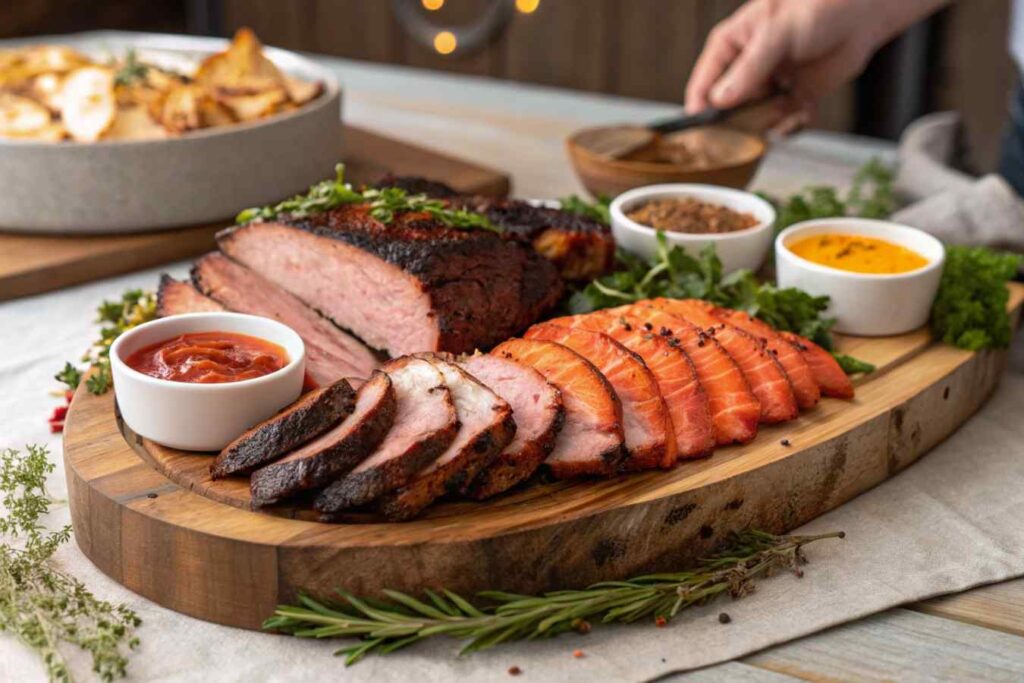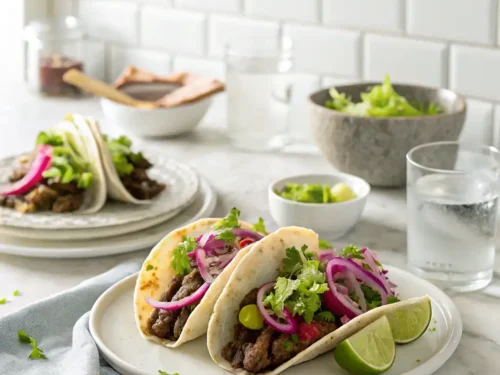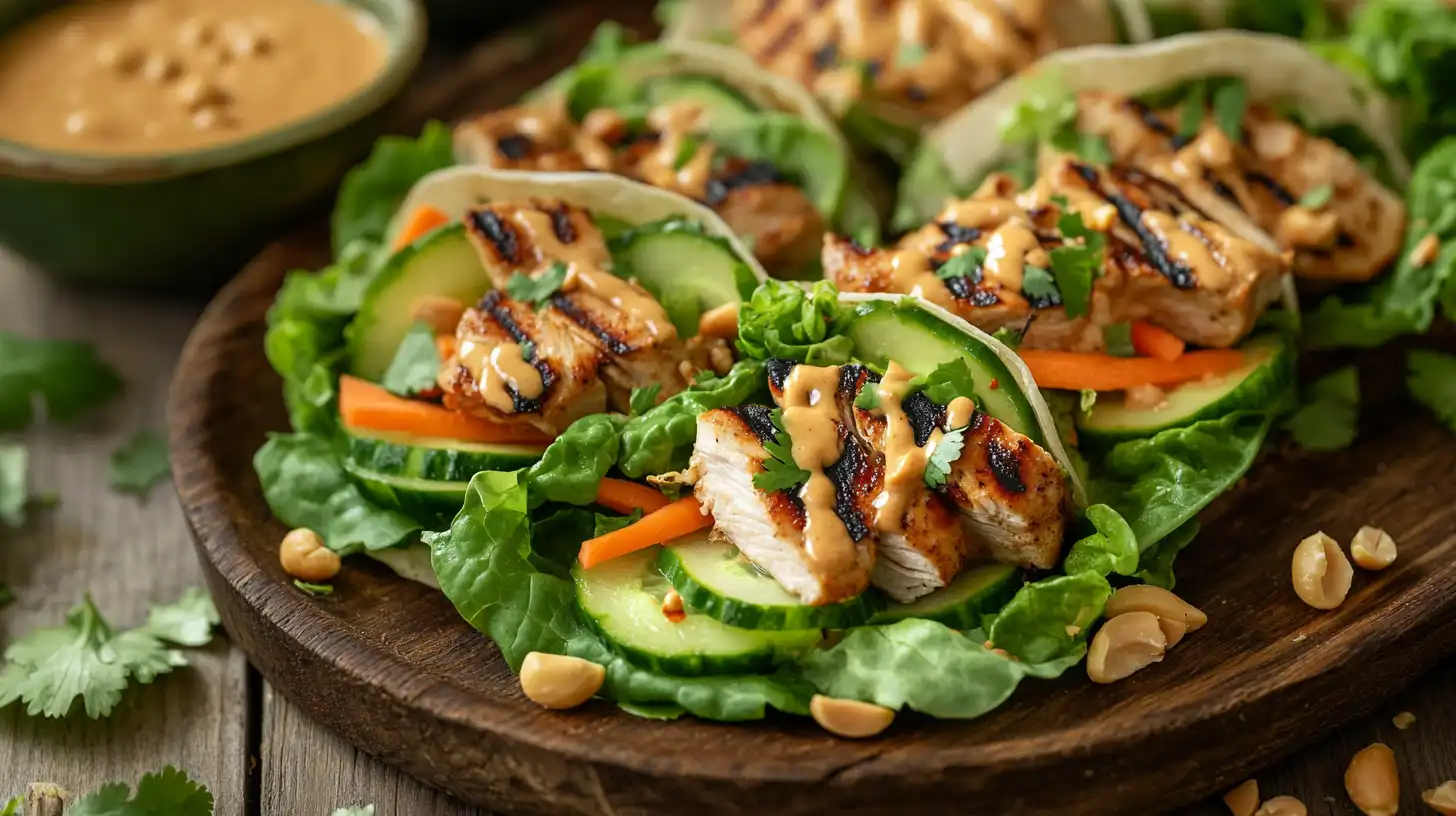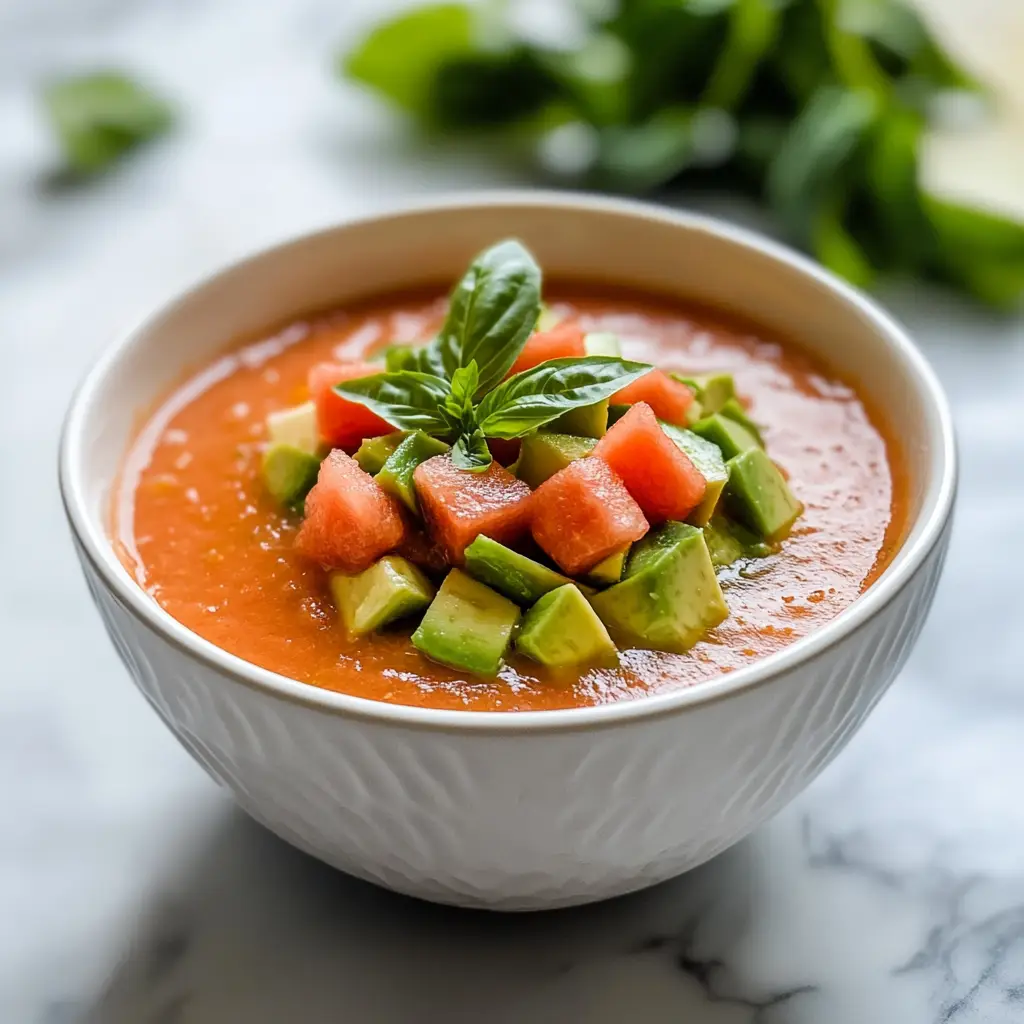Is smoked meat bad for you? This is a question many food lovers ask about this age-old cooking method. Smoked meat has been a beloved food tradition for centuries, offering rich flavors through slow cooking over wood, charcoal, or gas. Historically, smoking meat wasn’t just about taste-it was a way to preserve food and keep bacteria at bay. But with modern concerns about health risks, is this smoky delicacy truly safe to eat?
For an extensive guide on preparing smoked dishes, check out Smoker Recipes to discover flavorful and creative ideas.
Table of Contents
How Is Meat Smoked?
Imagine this: a cozy little smokehouse or even a backyard smoker. You toss in your meat, add wood chips (hickory, oak, or cherry are popular), and let the magic happen. The process can be “hot smoking,” where the meat cooks and smokes at the same time, or “cold smoking,” which is more for flavor than cooking.
Types of Smoked Meat
From smoky briskets to turkey legs that make you feel like a medieval knight, smoked meats come in all shapes and sizes. Here are some crowd favorites:
- Smoked Beef: Brisket, ribs, or even jerky.
- Smoked Poultry: Chicken wings, turkey, or duck.
- Smoked Fish: Salmon, mackerel, and trout.
- Smoked Lamb: Perfect for special occasions.
“Smoking isn’t just about cooking meat; it’s an art form that creates depth in flavor while preserving the product.” 🌟
Nutritional Value: Is Smoked Meat Bad for You or Good for Your Diet?
Now let’s dig into the meat of the matter-literally. Is smoked meat nutritious? Absolutely! But it’s a mixed bag. While it’s packed with protein and essential nutrients, there are some caveats (we’ll get to that later). Let’s break it down:
Benefits of Smoked Meat
Smoked meat is high in protein, making it great for muscle repair and growth. Plus, it’s often rich in vitamins like B12, which helps with energy production, and iron, which keeps your blood healthy.
To explore recipes with high nutritional value, see high-protein chicken and spinach salad.
Common Nutrients in Smoked Meat
| Nutrition | Amount per 100g |
|---|---|
| Protein | 25g |
| Iron | 2.5mg |
| Vitamin B12 | 2.4mcg |
| Sodium | 800-1200mg |
“While smoked meat is a solid source of nutrients, the high sodium content can make it a double-edged sword.” ⚔️
Why Do People Love Smoked Meat?
Let’s face it, few things compare to the rich, smoky essence of a perfectly cooked brisket or salmon. Smoking enhances the meat’s natural flavors, giving it a tender texture and a unique aroma. It also evokes memories of summer cookouts, camping trips, and shared meals with loved ones. But, like all indulgent treats, it’s best enjoyed in moderation.

Health Concerns: Is Smoked Meat Bad for You in the Long Run?
Alright, let’s get into the nitty-gritty. While smoked meat is undeniably delicious, it’s not always sunshine and rainbows. There are some legitimate health concerns that you should know about before diving into your next plate of ribs. Don’t worry, though-this isn’t all doom and gloom. With awareness and balance, you can still enjoy it without overdoing it.
Risk of Carcinogens
Here’s the catch: the smoky flavor we all love comes from compounds called polycyclic aromatic hydrocarbons (PAHs) and heterocyclic amines (HCAs). Sounds fancy, right? These compounds are formed when meat is exposed to high heat and smoke, and studies suggest they might increase the risk of cancer when consumed excessively.
“Think of carcinogens as the sneaky villains hiding in your smoky BBQ feast. They’re worth watching out for, but they don’t have to ruin the party.” 🍖
Sodium and Preservatives
If you’ve ever had store-bought smoked meat, you’ve probably noticed how salty it tastes. That’s because sodium is often used as a preservative and flavor enhancer. While sodium helps keep the meat safe to eat, too much of it can lead to high blood pressure, kidney strain, and heart disease.
| Potential Issues | How It Affects You |
|---|---|
| Excess Sodium | Leads to water retention and high blood pressure. |
| Added Nitrates | May form nitrosamines, linked to cancer risk. |
Heart Health and Smoked Meat
Smoked meat isn’t exactly heart-healthy food. The high levels of saturated fat (depending on the cut of meat) and sodium can stress your heart over time, especially if you’re not balancing your diet with fruits, veggies, and whole grains.
“Your heart is like your car engine-feed it the wrong fuel, and it’ll have trouble running smoothly!” ❤️
Common Problems: Why Smoked Meat May Not Be for Everyone
Let’s face it-no food is perfect, and smoked meat has its quirks. Here are some of the most common issues people experience when indulging in smoky goodness:
Digestive Issues
Have you ever felt bloated or uncomfortable after eating a smoked sausage or brisket? That’s because smoked meat can be harder to digest, especially if it’s fatty or heavily processed. The preservatives and rich flavors might not sit well with sensitive stomachs.
High Blood Pressure from Excess Sodium
Let’s not sugarcoat it (or salt-coat it, in this case). If you’re eating smoked meat regularly, the sodium can creep up on you. It’s especially problematic for people with high blood pressure or heart issues. Keep in mind that moderation is key!
Allergic Reactions to Preservatives
Some people are sensitive to the nitrates and nitrites used in processed smoked meats. These chemicals can cause allergic reactions, headaches, or even nausea. If you’ve ever felt off after eating smoked deli meat, this might be why.
The Debate: Is Smoked Meat Truly Bad for You?
Is smoked food really the dietary villain it’s often made out to be? The answer isn’t black and white. Let’s examine the pros and cons of this popular cooking method.
Arguments Against Consuming Smoked Foods
- Health Risks: High sodium, carcinogens, and saturated fats are the usual suspects.
- Environmental Impact: Smoking meat, especially in large-scale production, isn’t exactly eco-friendly.
- Digestive Strain: Heavy, fatty meats can be hard on your stomach.
Arguments for Enjoying Smoked Foods in Moderation
- High-Quality Protein:
- Many smoked items, like turkey or chicken breast, are packed with protein, an essential nutrient for muscle repair, energy, and overall health.
- Irresistible Flavor:
- Smoking enhances the natural taste of meats and other foods, offering a depth of flavor that is hard to replicate with other cooking methods.
- Cultural and Culinary Significance:
- Around the world, smoked foods are a cornerstone of traditional cuisine. From tender BBQ ribs in America to smoked fish in Nordic countries, this preparation method represents rich cultural history and culinary artistry.
“The verdict? Smoked meat isn’t the villain-it’s more like that mischievous friend you have to keep an eye on.” 😏
What’s Next?
Now that we’ve discussed the risks and common challenges associated with smoked foods, let’s shift gears and explore solutions. In the next section, we’ll dive into how to enjoy smoked dishes in a healthier way, explore alternative cooking methods, and share tips for incorporating them into a balanced diet.
Tips for Safely Enjoying Smoky Flavors
No need to give up on your favorite smoky dishes! With a few mindful choices, you can enjoy them without compromising your health. Here’s how:
- Low in Sodium: Some brands offer reduced-sodium options. Go for these to keep your blood pressure in check.
- Free of Nitrates and Nitrites: Opt for meats labeled “uncured” or “nitrate-free.” These are less processed and safer.
- Lean Cuts: Choose cuts like turkey or chicken breast over fatty options like pork belly or ribs.
Looking for lower-sodium alternatives? Check out low-sodium meal ideas.
“Think of your shopping trip as a treasure hunt-seek out smoked meats with fewer additives and healthier ingredients.” 🛒
Preparing Smoked Meat at Home: A Healthier Alternative
Why not take control and make your own smoked meat at home? You can avoid preservatives, control the sodium, and experiment with flavors. All you need is a smoker or even a basic grill with a smoking attachment. Here’s a simple outline:
- Choose the Right Meat: Start with lean cuts like chicken or turkey.
- Marinate Naturally: Use herbs, spices, and a little olive oil instead of salt-heavy rubs.
- Smoke at Lower Temperatures: To minimize harmful PAHs and HCAs, keep the heat low and steady.
- Use Natural Wood Chips: Cherry, applewood, or hickory add flavor without chemicals.
“Homemade smoked meat isn’t just healthier-it’s also a fun way to flex your cooking skills!” 👨🍳
Portion Control: How Much Smoked Meat Is Too Much?
Moderation is the golden rule. Aim to enjoy smoked meat as an occasional treat rather than a daily habit. A good guideline is to keep your portion sizes to about 3–4 ounces per serving (about the size of a deck of cards).
Alternative Cooking Methods to Smoking
If you’re worried about the risks of smoking but love the flavor, there are other ways to achieve a similar taste. Here are a few alternatives:
Baking
Baking meat with a smoky spice rub can replicate the flavor without the risks. Use paprika, cumin, and garlic powder for a smoky kick.
Grilling
Grilling over indirect heat with wood chips can create a mild smoky flavor without as much exposure to harmful compounds.
Slow Cooking
Using a slow cooker with liquid smoke (a natural flavoring made from condensed wood smoke) can give your meat that smoky taste in a healthier way.
“You don’t need a smoker to enjoy smoky flavors-think outside the BBQ pit!” 🍳
Tips for Balancing Smoked Meat in a Healthy Diet
Smoked meat can fit into a balanced diet if you pair it with nutritious sides and follow a few simple guidelines:
Pairing Smoked Meat with Vegetables and Whole Grains
Add a rainbow of veggies to your plate-think roasted asparagus, grilled zucchini, or a fresh salad. Whole grains like quinoa or brown rice can also help offset the richness of smoked meat.
| Healthy Pairings | Benefits |
|---|---|
| Grilled Vegetables | Boost fiber and add antioxidants. |
| Whole Grains | Balance the meal with complex carbs. |
| Fresh Herbs | Add flavor without extra sodium. |
Hydration and Smoked Meat Consumption
Smoked meat can be salty, so staying hydrated is crucial. Drink plenty of water, and include water-rich foods like cucumbers and watermelon in your meal.
“Think of hydration as your body’s way of washing down all that smoky goodness-it’s essential!” 💧
Case Studies: Is Smoked Meat Bad for You or Misunderstood?
To bring things into perspective, let’s look at a couple of real-life scenarios:
Long-Term Smokers and Health Outcomes
Research has shown that people who consume smoked meats daily over several years are more likely to experience health issues like high blood pressure and an increased risk of certain cancers. However, these risks often decrease with a balanced diet and reduced consumption.
Positive Experiences with Balanced Smoked Meat Consumption
On the flip side, many food enthusiasts enjoy smoked meat occasionally without adverse effects. Pairing smoked meats with fresh, wholesome sides and staying active makes a big difference.

Conclusion: Is Smoked Meat Bad for You? Final Thought
Smoked foods aren’t automatically “bad” for you, but they do come with certain considerations. By being mindful of the risks, selecting healthier alternatives, and keeping your portions in check, you can still enjoy these flavorful dishes as part of a well-rounded diet.
Making Informed Choices
At the end of the day, it’s all about balance. Smoked meat can be a delicious part of your diet, but it shouldn’t dominate your plate. Treat it as an occasional indulgence, and you’ll savor the flavor without the worry!



















